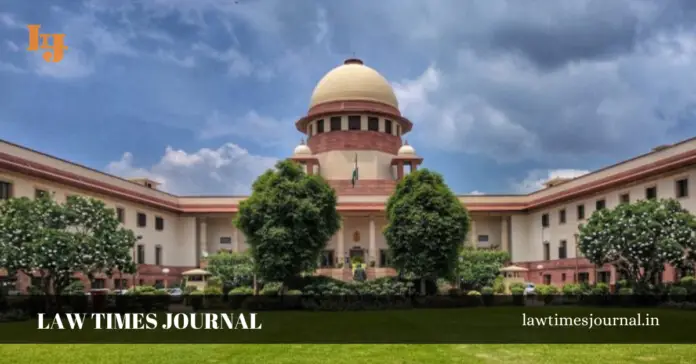
The Supreme Court bench of Justice Indira Banerjee and Justice S. Ravindra Bhat held that the seniority of the promotees given on the basis of their dates of appointment was justified as per Rule 27 of the Rajasthan Commercial Taxes Subordinate Services (General Branch) Rules, 1975, in the case where Direct Recruits to the newly created posts of Tax Assistants in the Finance Department of the Government of Rajasthan claimed seniority over Departmental Promotees.
The seniority in the case was challenged after the Direct Recruits of the department argued their appointment, later than the Departmental Promotees is the result of manipulation by the department who wished to favor the Departmental Promotees. They said that since the date of their selections began before that of the Departmental Promotees, the second proviso is attracted, for determination of inter se seniority. They also argued that the selection- in terms of the rules, “subsequent selection” necessarily refers to a chronologically later event.
It was also urged that the amended rule 27 of Rules, 1975 only speaks about the seniority on the basis of date of appointment but the proviso (2) clarifies the rule for reckoning seniority when there are two advertisements for the same post, filled through different categories (sources) of candidates. Therefore, the main rule will only apply when the recruitment is through the same advertisement. They said that this rule cannot be applied when advertisement was issued for same posts after release of results of 1st advertisement. As this will always deprive the candidates on basis of seniority conflict.
The Supreme Court observed that the main provision of Rule 27 of Rules, 1975 was amended as to clearly provide that seniority in the cadre would be fixed from the dates of appointment of the employees, or officers, to the cadre. However, the provisos of the Rules 27 were retained. Where the Rajasthan HC said that this rule’s proviso applied to selections from the same source, i.e. where two sets of direct recruits were appointed, those selected through a previous recruitment process, would rank senior to those recruited through a later recruitment process.
The Supreme Court termed this interpretation ‘salutary’ and said that- “There may be various reasons why the ultimate appointment of one batch of recruits may be delayed: challenges to some part of the recruitment process (such as shortlisting, calling of candidates for interviews etc.), during which period, a subsequent recruitment may be undertaken. To forestall any apprehensions as to which of the appointees would be senior, and if those from the earlier process are appointed later, the proviso clarifies that candidates from the earlier process would rank senior, despite the main rule speaking of a date of appointment based seniority.”
The Court applied the same logic to departmental promotees, as well, if two batches of promotees are appointed, through selection. It said,
Hence, keeping in mind that the advertisements for filling the entire cadre, in both the quotas or streams of recruitment were issued one after the other the Court held that the seniority of the promotees given on the basis of their dates of appointment was justified.
Read Judgement-
https://main.sci.gov.in/supremecourt/2018/30109/30109_2018_33_1502_24819_Judgement_26-Nov-2020.pdf








